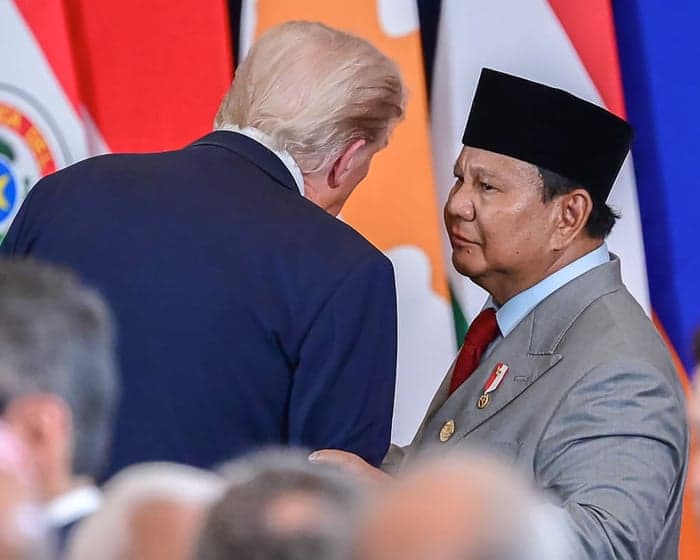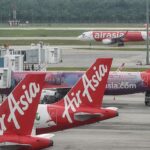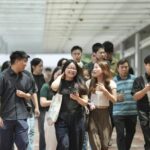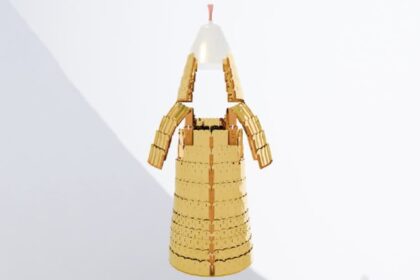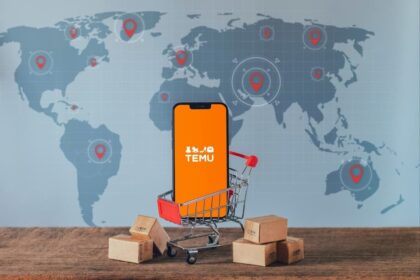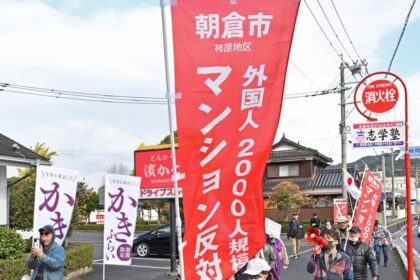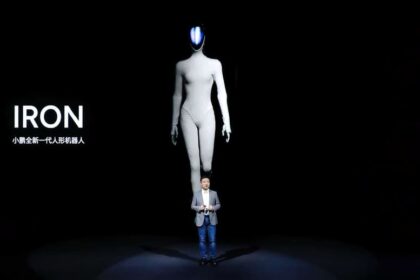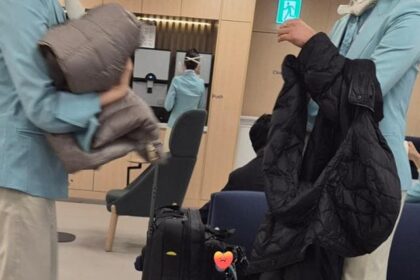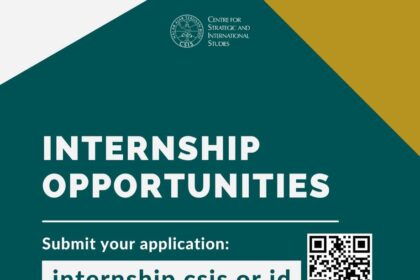A private exchange becomes public
At a Gaza peace summit in Sharm el Sheikh, Egypt, Indonesian President Prabowo Subianto was overheard asking United States President Donald Trump for a meeting with Eric Trump, the president’s son and a senior executive at the Trump Organization. The short exchange, captured on a live microphone shortly after Trump addressed assembled leaders, quickly drew attention because it blended the setting of high level diplomacy with a reference to the president’s family business.
Video of the scene shows both leaders standing near a podium after the main speeches. The audio suggests neither man realized a microphone was still active. Prabowo referred to a place he described as not safe, security wise, then turned to the request. Trump replied in a familiar tone and offered to have his son connect by phone. The conversation came minutes after world leaders gathered to discuss a ceasefire and a wider effort to stop months of fighting in Gaza.
The aside was brief, yet it touched on sensitive ground. Eric Trump and his brother Donald Trump Jr. serve as executive vice presidents of the family business, which markets branded real estate, hospitality projects, and other ventures, including in Indonesia. That overlap has drawn scrutiny in the past. Donald Trump placed his private assets into a trust managed by his children while keeping ownership, rather than selling his interests or creating a blind trust. Company representatives say he has no role in day to day decision making.
What exactly was said
The audible portions of the exchange make the request plain. Prabowo, standing near Trump in front of microphones, shifted the conversation away from the summit agenda and toward a private contact with the president’s son.
Prabowo Subianto, President of Indonesia: “Can I meet Eric?”
Trump appeared to agree, twice offering to have his son reach out by phone.
President Donald Trump: “I’ll have Eric call. Should I do that? He’s such a good boy. I’ll have Eric call.”
Prabowo then indicated they would choose a better location for any meeting and signaled he was open to speaking with either of Trump’s sons.
Prabowo Subianto: “We will look for a better place … Eric or Don Jr.”
During the brief exchange, Prabowo also mentioned the name Hary. In Indonesia, that name is associated with Hary Tanoesoedibjo, the billionaire founder of the MNC Group and a long time business partner of the Trump Organization. The audio does not make clear whether Prabowo was referring to him or to business matters at all.
Why the request matters
The setting amplified the stakes. Leaders were in Egypt to support a fragile Gaza ceasefire and to discuss how to sustain calm. In that context, a side conversation about connecting with a private business executive, even one who is a member of the president’s family, raises questions about access and priorities. Presidents interact with foreign leaders in formal and informal settings. Those interactions are judged not only by outcomes, but also by the appearance of any blending of public duties with private interests.
The president is not bound by the main criminal conflict of interest statute that applies to most executive branch employees. That law restricts officials from taking part in matters that affect their financial interests. The presidency is exempt, a carve out that dates to concerns over separation of powers. The Emoluments Clauses of the Constitution still apply, and bribery and honest services laws still apply. Yet most modern presidents have chosen to separate sharply from their private assets to avoid any appearance that official decisions might benefit their holdings.
How Trump structured his business ties while in office
During his first term, Donald Trump placed his assets into a revocable trust managed by his sons and a close associate while keeping ownership. Ethics specialists argued that this approach fell short of a blind trust, because the beneficiaries and managers were public, the properties were known, and the president received regular reports on the business. Trump has returned to that approach in his second term, with the company saying he has no role in day to day operations. Supporters point out that no statute forces a president to divest. Critics warn that foreign governments and private actors may perceive a pathway to curry favor by engaging with the president’s brand around the world.
That backdrop explains the attention on a foreign head of state asking for access to the president’s son at a multilateral summit. Even if the leaders intended to discuss a public project or a security matter, the language of the exchange points toward a personal call involving a business executive with active projects in the requester’s country. Ethics experts often focus on appearances for that reason. The risk is not only a specific quid pro quo, but also a public perception that private interests have a privileged channel during official events.
Indonesia, MNC Group, and the Trump brand
Trump branded projects in Indonesia are a key part of the context. The Trump Organization markets a golf club near Jakarta as part of an integrated resort, and it lists a luxury resort and golf club in Tabanan on the island of Bali as coming soon on its website. Both projects involve partnerships with MNC Group, a large Indonesian conglomerate led by Hary Tanoesoedibjo. MNC Land, the property unit, has promoted the Lido City area about 60 kilometers south of Jakarta as an entertainment and tourism corridor.
Regulatory hurdles have complicated the timeline. In February, Indonesia’s environment ministry ordered MNC Land to halt aspects of development at Lido over water management and environmental concerns. Company statements have emphasized cooperation with regulators and a plan to address compliance. The golf and hospitality components have faced delays, and the Bali project has remained in the planning and approvals phase for several years. The Trump Organization highlights the Indonesian market as a growth opportunity, and Eric Trump has publicized the brand’s presence there in recent months.
Who is Hary Tanoesoedibjo
Hary Tanoesoedibjo is one of Indonesia’s most visible media and property magnates. Through MNC Group he controls television networks, digital platforms, gaming businesses, and extensive land holdings. He has cultivated relationships with international partners, including the Trump Organization, for marquee properties. He attended high profile political events in the United States and has positioned MNC as a national champion eager to attract global investors. If Prabowo’s reference to Hary in the hot mic exchange referred to Hary Tanoesoedibjo, it would fit the long running collaboration between MNC and the Trump brand. The audio is too limited to make that explicit.
Indonesia’s leadership has sought foreign investment to support tourism and infrastructure across the archipelago. Prabowo, a former general who took office with a mandate to maintain economic momentum, has encouraged high visibility projects that can create jobs and draw visitors. That interest has intersected with the Trump Organization’s focus on premium resorts, making Indonesia one of the few countries where the company maintains active projects while Donald Trump serves as president.
Inside the Gaza summit
The exchange occurred during a meeting framed around a newly announced ceasefire in Gaza and steps to stabilize the territory. Leaders gathered in Sharm el Sheikh to endorse measures to stop rocket fire, reopen crossings for humanitarian relief, and outline a political process to reduce the risk of renewed fighting. Trump delivered remarks that praised the ceasefire and called on regional partners to support a sustained halt to violence. The summit aimed to signal that key players were aligned on de escalation and reconstruction planning.
Summits often produce headline speeches and private corridor conversations. Side discussions can involve regional disputes, trade, or logistics. The hot mic turned one of those asides into a public moment. The content of the exchange was short. Yet it shifted attention from the Gaza deliberations to the question of whether an international event was used to coordinate a private contact. The issue carries weight because leaders who manage both public responsibilities and private brands are judged by whether lines between those spheres remain clear.
Reactions in Washington and Jakarta
The White House did not immediately respond to questions about the exchange. The office of the Indonesian president did not comment, and Indonesia’s foreign ministry said it had not reviewed the audio. Indonesian officials have described Prabowo and Trump as having a friendly rapport. That personal comfort helps explain how a quick request for a phone introduction could arise even in a formal setting.
The Trump Organization and MNC Group did not respond to questions about whether the leaders were referring to any of the projects in Indonesia. The company has said Donald Trump does not participate in operations, and that his adult sons oversee deals and development. That arrangement is allowed under federal law. Ethics specialists, however, argue that a modern presidency benefits from deeper separation to protect public trust. Past lawsuits over emoluments generated years of litigation, and while courts resolved some disputes on procedural grounds, they did not settle the broader debate.
In Indonesia, the episode is unlikely to create significant political fallout for Prabowo. He remains popular at home and has positioned himself as a pragmatic leader focused on security and growth. Analysts in Jakarta framed the moment as a case of informal leader to leader rapport, though some called for clearer protocols to keep state engagements distinct from any private contact during official travel.
What the rules allow
United States law draws a distinction between the president and most executive branch officials on conflicts. Criminal conflict of interest statutes do not apply to the president and vice president. The Constitution bars federal officeholders from accepting gifts, payments, or benefits from foreign states without congressional consent. Presidents also face bribery prohibitions and rules against misuse of office for private gain. Much of the system relies on a mix of transparency, voluntary separation from private assets, and political accountability through oversight and elections.
Presidents have taken different approaches. Some created blind trusts and sold stock to avoid even the appearance of divided loyalties. Donald Trump kept ownership of a sprawling real estate and licensing business, which means headlines about that company naturally intersect with headlines about official travel and contacts. A foreign leader asking for a conversation with the president’s adult son who helps run that business, at a summit dedicated to war and peace, is a vivid example of how quickly those storylines can converge.
Next steps often depend on whether the conversation produces concrete actions. If Eric Trump or Donald Trump Jr. makes contact and the topic involves private ventures in Indonesia, watchdog groups are likely to file complaints or seek records. If the contact involves a public project or a security issue, officials can document the purpose and participants to avoid confusion. The unanswered question is what the two leaders intended. The audio does not make that clear, and neither government has offered more detail.
What to Know
- Indonesian President Prabowo Subianto was overheard asking U.S. President Donald Trump for a meeting with Eric Trump after Gaza summit remarks in Sharm el Sheikh.
- Trump replied that he would have Eric call, repeating the offer, and Prabowo said he could speak with Eric or Donald Trump Jr.
- The audio also includes a reference to Hary, likely a nod to MNC Group founder Hary Tanoesoedibjo, a long time Trump Organization partner in Indonesia, though the context is unclear.
- It is not clear whether the conversation touched on private business, public matters, or both.
- Trump’s company markets a golf club near Jakarta and lists a luxury resort and golf club in Bali as coming soon, both in partnership with MNC Group.
- Indonesia’s environment ministry ordered parts of the Lido development to pause in February over water and environmental issues, and both Indonesian projects have experienced delays.
- The president is exempt from the main criminal conflict of interest statute, but constitutional and anti bribery limits still apply, and presidents are judged by the appearance of separation from private interests.
- The White House, Prabowo’s office, Indonesia’s foreign ministry, the Trump Organization, and MNC Group did not immediately comment on the exchange.


